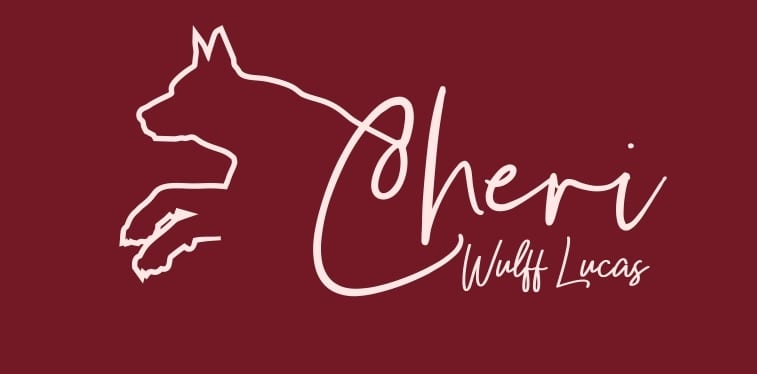
Question from Melissa:
My husband and I lost our five-year-old Pomeranian suddenly in October and our four-year-old rescue black Lab/Chow mix has been acting out and suffering separation anxiety and has bitten one of my cats and a friend’s dog (both requiring vet visits). He seems more affectionate with us but also less secure. We let him run off leash on the beach every morning so he will be tired while we are at work and he has a dog door to get to the backyard but he has destroyed our belongings and eaten a man-sized hole out of the couch. Also he seems more aggressive with other dogs when we walk him on a leash and he’ll instigate fights with other males. I’d appreciate any advice to deal with our problem child – we love him dearly. Thank you in advance.
Advice from Cheri Lucas:
I love this question because it’s such a classic example of what can happen when pack dynamics change due to the loss of a pack member. Your Pomeranian had more than likely been the pack leader in your home. Your dogs probably got along well, and things seemed calm and under control. But the balance in your home was dependent on your Pomeranian, not you – the humans in the home.
Every dog has an ingrained pack mentality. Dogs understand that each member has an important position within the pack. They also understand that their very survival is dependent on the pack working together as a whole, cohesive unit.
The loss of your Pomeranian left a leadership void in your pack. Remember, your pack consists of all of the entities in your home – your dogs, your cats, and you. Since you and your husband are not perceived as the leaders, there is no longer anyone in charge of your pack. The unstable, dominant behavior your Lab/Chow mix is exhibiting is his way of compensating for the lack of leadership. Imagine how fearful and insecure you would feel if you were suddenly thrust into a position you knew you were not equipped to handle!
The best thing you can do to help your Lab/Chow mix is to remove the burden he feels and establish yourselves as his pack leader. The fastest way to do this is to begin to add structure and rules to his life. The activities you now practice with him all nurture excited / dominant behavior – running the beach off leash, unlimited access to the backyard. It’s clear by the shift in his behavior that he needs a more structured lifestyle, especially right now after the loss of an important pack member.
Here is my strategy for turning your dog around:
- Begin daily, structured, on-leash pack walks with your dog. Keep your energy calm and very assertive. If you encounter other dogs during your walk and he becomes reactive, give him a firm leash correction and move on.
- Consider giving him access to the backyard only when he’s supervised. Every time he’s allowed to practice destructive behavior in your home or yard, the behavior will become more ingrained. When I’m training a dog that is untrustworthy in my home, I rely on a crate when I can’t watch him.
- Don’t nurture his sudden insecurity by allowing him to demand affection from you. Hold off giving him affection until after his walk and he has “earned” it.
- Don’t feel sorry for him! The only way your dog will learn to move on is if you let him! Keep in mind that his out-of-control behavior is coming from a lack of structure, not grief. He’s begging you to take charge, not feel pity!
It’s clear that you are devoted to your dog. Turning his behavior around is a process. Envision a well-behaved, balanced, fulfilled dog. Be patient, focused and most of all – positive!
